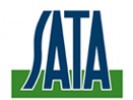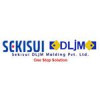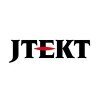Filter interviews by
Seoyon E-hwa Automotive Production Engineer Interview Questions and Answers
Seoyon E-hwa Automotive Production Engineer Interview Experiences
1 interview found
I applied via Approached by Company and was interviewed in Sep 2024. There was 1 interview round.
(1 Question)
- Q1. Machine related questions Ans Injections moulding horizontal type machine handle
Interview questions from similar companies

I applied via Naukri.com and was interviewed in Jul 2022. There were 3 interview rounds.

(2 Questions)
- Q1. What are the lathe machine?
- Ans.
Lathe machines are tools used for shaping and cutting materials such as metal and wood.
Lathe machines rotate a workpiece on its axis while a cutting tool is applied to shape it.
They can be used for various operations such as drilling, knurling, and sanding.
There are different types of lathe machines such as engine lathes, turret lathes, and CNC lathes.
Lathe machines are commonly used in manufacturing and metalworking i...
- Q2. Types lathe , types milling
GD is a discussion that tests the candidate skills such as leadership skills, commutation skills, social skills, behaviour, politeness, teamwork.
Interview Preparation Tips
- Tool Room
- Production
- Aoutcad
- Nx unigrphics
Work-life balance
Show Up early
Be confident
Ask for help
Enjoy
Challenge yourself. Say yes to the things that scare you.
Focus on your strengths. Focus on your strengths and use that as an advantage to capitalize on the tasks at hand.

(2 Questions)
- Q1. Shop floor management Oee, tpm, and 5-s
- Q2. Minimum resources maximum out put
- Ans.
Minimum resources should be utilized to achieve maximum output in production engineering.
Efficient use of resources is crucial for maximizing output
Optimizing processes and reducing waste can lead to increased productivity
Automation and technology can help streamline production and reduce resource usage
Continuous improvement and monitoring can identify areas for further optimization
Examples: Lean manufacturing, Six Sig
Interview Preparation Tips

Production Engineer Interview Questions & Answers
Caparo Engineering Indiaposted on 3 May 2024
I applied via Recruitment Consulltant and was interviewed in Nov 2023. There was 1 interview round.
(2 Questions)
- Q1. Tell me about yourself.
- Q2. What is gemba, power press, type of tool in power press, stamping process
- Ans.
Gemba is a Japanese term for 'the real place', power press is a machine used for stamping metal, tools used in power press include dies and punches, stamping process involves shaping metal by pressing it between dies.
Gemba is a Japanese term meaning 'the real place' or 'the actual place where work is done'
Power press is a machine used in metalworking to shape or cut metal using dies and punches
Tools used in power press...

(2 Questions)
- Q1. Technical
- Q2. Production
Interview Preparation Tips

An aptitude test is designed to assess an individual's ability to perform certain tasks or react to a range of different situations. These tests are often used by educational institutions and employers to evaluate potential candidates' skills, talents, and potential for success in a specific role or academic program. Here are some key details about aptitude tests:
1. **Purpose**: Aptitude tests are used to measure a variety of skills, including logical reasoning, verbal ability, numerical skills, and spatial awareness. They help to identify strengths and weaknesses and predict future performance.
2. **Types**:
- **Verbal Reasoning**: Assesses understanding and reasoning using concepts framed in words.
- **Numerical Reasoning**: Tests ability to work with numbers, including basic arithmetic, data interpretation, and logical problem-solving.
- **Abstract Reasoning**: Evaluates the ability to identify patterns, logical rules, and trends in new data.
- **Mechanical Reasoning**: Measures understanding of mechanical and physical principles.
- **Spatial Reasoning**: Assesses the ability to visualize and manipulate objects.
3. **Format**: Aptitude tests can be multiple-choice, true/false, or involve practical problem-solving tasks. They are often timed, with specific sections dedicated to each type of reasoning.
4. **Preparation**:
- **Practice Tests**: Taking practice tests helps familiarize with the format and types of questions.
- **Study Guides**: Reviewing basic concepts in mathematics, grammar, and logical reasoning.
- **Skills Development**: Enhancing skills through puzzles, reading, and other related activities.
5. **Usage**:
- **Recruitment**: Employers use aptitude tests to screen job applicants and find the best fit for a role.
- **Education**: Schools and colleges use these tests for admissions, placement, and identifying areas for student improvement.
- **Career Counseling**: Helps individuals understand their strengths and areas for improvement, guiding career choices.
6. **Scoring**: Scores are typically presented as percentiles, showing how a test-taker compares to a norm group. Higher scores indicate better performance relative to the norm group.
If you have specific questions about a certain type of aptitude test or need preparation tips, feel free to ask!
(2 Questions)
- Q1. Tell me about yourself.Tip: Provide a brief overview of your professional background, focusing on experiences relevant to the job you're applying for. Highlight your key achievements and skills.
- Q2. Know YourselfAssess and interest.
Interview Preparation Tips

I appeared for an interview in Aug 2023.
(2 Questions)
- Q1. Why are you change job ?
- Q2. What is your notice period?
(5 Questions)
- Q1. What is your KPI
- Ans.
My KPI as a Production Engineer is to ensure efficient production processes, minimize downtime, and optimize product quality.
Monitoring and improving production efficiency
Reducing downtime through preventive maintenance
Implementing quality control measures
Optimizing production output
Analyzing and improving production costs
- Q2. How to calculate OEE
- Ans.
OEE (Overall Equipment Efficiency) can be calculated by multiplying Availability, Performance, and Quality percentages.
Calculate Availability by dividing the total operating time by the planned production time.
Calculate Performance by dividing the actual production rate by the maximum production rate.
Calculate Quality by dividing the good units produced by the total units produced.
Multiply the Availability, Performance
- Q3. What is 4M and what is retroactive & prospective
- Ans.
4M is a methodology used in production engineering. Retroactive refers to actions taken after an event, while prospective refers to actions taken before an event.
4M is a methodology used in production engineering that stands for Man, Machine, Material, and Method.
Man refers to the human resources involved in the production process.
Machine refers to the equipment and tools used in production.
Material refers to the raw m...
- Q4. What is base documents of control plan
- Ans.
The base documents of a control plan include process flow diagrams, work instructions, and quality standards.
Process flow diagrams outline the sequence of steps in the production process.
Work instructions provide detailed instructions on how to perform each step of the process.
Quality standards define the criteria for acceptable quality and specify the required inspections and tests.
Other base documents may include con...
- Q5. What is 5W 1H
- Ans.
5W 1H is a technique used to gather information by asking five 'W' questions and one 'H' question.
5W 1H stands for Who, What, When, Where, Why, and How.
It is commonly used in journalism, problem-solving, and project management.
By asking these questions, one can gather comprehensive information about a situation or problem.
For example, in a production engineering context, the 5W 1H questions could be: Who is responsible...

I appeared for an interview in Sep 2024.
(5 Questions)
- Q1. What were your job responsibilities in your previous position?
- Ans.
In my previous role as a Production Engineer, I managed production processes, optimized workflows, and ensured quality standards.
Oversaw daily production operations, ensuring efficiency and adherence to schedules.
Implemented process improvements that reduced production time by 15%.
Collaborated with cross-functional teams to troubleshoot and resolve production issues.
Conducted regular quality control inspections to main...
- Q2. How many personnel did you manage?
- Ans.
I managed a team of 10 personnel, overseeing their daily tasks and ensuring project goals were met efficiently.
Led a team of 10 engineers in a manufacturing project, coordinating schedules and tasks.
Implemented training programs for new hires, improving team productivity by 15%.
Conducted regular performance reviews, providing feedback and setting goals for team members.
Facilitated communication between departments to s
- Q3. What is the purpose of a " Why Why" analysis?
- Ans.
A 'Why Why' analysis identifies root causes of problems by repeatedly asking 'why' to uncover underlying issues.
Helps in identifying the root cause of a problem rather than just addressing symptoms.
Involves asking 'why' multiple times (typically five) to drill down to the core issue.
Example: If a machine breaks down, asking 'why' could lead to discovering inadequate maintenance practices.
Encourages a systematic approac...
- Q4. What are the implications of the 5S methodology?
- Ans.
5S methodology enhances workplace efficiency through organization, cleanliness, and standardization.
Sort (Seiri): Remove unnecessary items from the workspace. Example: Discarding outdated tools.
Set in Order (Seiton): Organize tools and materials for easy access. Example: Labeling storage areas.
Shine (Seiso): Clean the workspace regularly to maintain a safe environment. Example: Daily cleaning schedules.
Standardize (Sei...
- Q5. What products did you assemble during your experience?
(2 Questions)
- Q1. What kaizen initiatives have you implemented to reduce time?
- Ans.
Implemented kaizen initiatives to streamline processes, reduce waste, and enhance efficiency in production workflows.
Conducted time-motion studies to identify bottlenecks in the assembly line, leading to a 15% reduction in cycle time.
Introduced standardized work procedures that minimized variability and improved training efficiency for new employees.
Implemented a visual management system using Kanban boards to track wo...
- Q2. Are you familiar with the concept of the eight types of waste in lean manufacturing?
- Ans.
The eight types of waste in lean manufacturing focus on eliminating inefficiencies to enhance productivity and value.
1. Overproduction: Producing more than needed, e.g., making 100 units when only 50 are required.
2. Waiting: Idle time when resources are not being utilized, e.g., workers waiting for materials.
3. Transport: Unnecessary movement of products, e.g., moving items across the facility multiple times.
4. Extra P...
(2 Questions)
- Q1. Are you willing to relocate to Neemrana?
- Ans.
Yes, I am open to relocating to Neemrana for the opportunity to grow and contribute as a Production Engineer.
Relocating to Neemrana aligns with my career goals and aspirations.
I am excited about the potential to work in a new environment and learn from different challenges.
I have previously relocated for work, such as moving to a different city for an internship, which helped me adapt quickly.
I believe that working in ...
- Q2. What are your salary expectations?
Interview Preparation Tips

I applied via Recruitment Consulltant and was interviewed in Sep 2022. There were 4 interview rounds.

(2 Questions)
- Q1. Production Plan, CNC Programming, Fixture and clamping system
- Q2. Trouble shooting of quality related issue
- Ans.
Troubleshooting quality issues involves identifying the root cause and implementing corrective actions.
Gather information about the issue and its impact on production
Identify the root cause using tools like fishbone diagrams or 5 whys
Develop and implement corrective actions to address the root cause
Monitor the effectiveness of the corrective actions and adjust as necessary
(1 Question)
- Q1. CV Mention Skill, Programme run in CNC Machine
(1 Question)
- Q1. Introduction, Basic Handling Problem, Reason for job change, salary negotiations
Interview Preparation Tips

I applied via Walk-in and was interviewed in Oct 2021. There were 4 interview rounds.
Interview Questionnaire
6 Questions
- Q1. Plz introduce your self.
- Q2. What is difference between petrol engine & diesel engine.
- Ans.
Petrol engines use spark ignition while diesel engines use compression ignition.
Petrol engines use spark plugs to ignite the fuel-air mixture, while diesel engines rely on compression to ignite the fuel.
Petrol engines typically have higher RPM (revolutions per minute) compared to diesel engines.
Diesel engines are more fuel-efficient than petrol engines.
Petrol engines are generally lighter and more compact than diesel e...
- Q3. Types of brakes
- Ans.
Types of brakes include disc brakes, drum brakes, regenerative brakes, and hydraulic brakes.
Disc brakes use calipers to squeeze brake pads against a disc rotor.
Drum brakes use brake shoes that press against the inside of a drum.
Regenerative brakes convert kinetic energy into electrical energy to recharge the battery.
Hydraulic brakes use fluid pressure to apply force to the brake pads or shoes.
- Q4. How many years or months of experience.
- Q5. Where are you stay in pithampur .
- Q6. Why are resign to previous company
Interview Preparation Tips
Seoyon E-hwa Automotive Interview FAQs
Tell us how to improve this page.
Seoyon E-hwa Automotive Interviews By Designations
- Seoyon E-hwa Automotive Quality Engineer Interview Questions
- Seoyon E-hwa Automotive Junior Engineer Interview Questions
- Seoyon E-hwa Automotive Maintenance Manager Interview Questions
- Seoyon E-hwa Automotive Senior Engineer Mechanical Interview Questions
- Seoyon E-hwa Automotive Assistant Engineer Interview Questions
- Seoyon E-hwa Automotive Manager Interview Questions
- Seoyon E-hwa Automotive Executive Assistant Interview Questions
- Seoyon E-hwa Automotive Production Engineer Interview Questions
- Show more
Interview Questions for Popular Designations
- Production Supervisor Interview Questions
- Production Manager Interview Questions
- Production Officer Interview Questions
- Executive Production Interview Questions
- Production Interview Questions
- Senior Production Engineer Interview Questions
- Production Chemist Interview Questions
- Production Operator Interview Questions
- Show more
Seoyon E-hwa Automotive Production Engineer Interview Process
based on 2 interviews
Interview experience
Production Engineer Interview Questions from Similar Companies
Seoyon E-hwa Automotive Production Engineer Reviews and Ratings
based on 4 reviews
Rating in categories
|
Graduate Engineer Trainee (Get)
224
salaries
| ₹1.1 L/yr - ₹3 L/yr |
|
Assistant Engineer
196
salaries
| ₹2 L/yr - ₹5.3 L/yr |
|
Junior Engineer
100
salaries
| ₹3.2 L/yr - ₹7.5 L/yr |
|
Associate Trainee
69
salaries
| ₹1.2 L/yr - ₹2.5 L/yr |
|
Engineer
63
salaries
| ₹3 L/yr - ₹8.6 L/yr |

ZF Steering Gear

Caparo Engineering India

Marelli

Enco Engineers Combine
- Home >
- Interviews >
- Seoyon E-hwa Automotive Interview Questions >
- Seoyon E-hwa Automotive Production Engineer Interview Questions


















